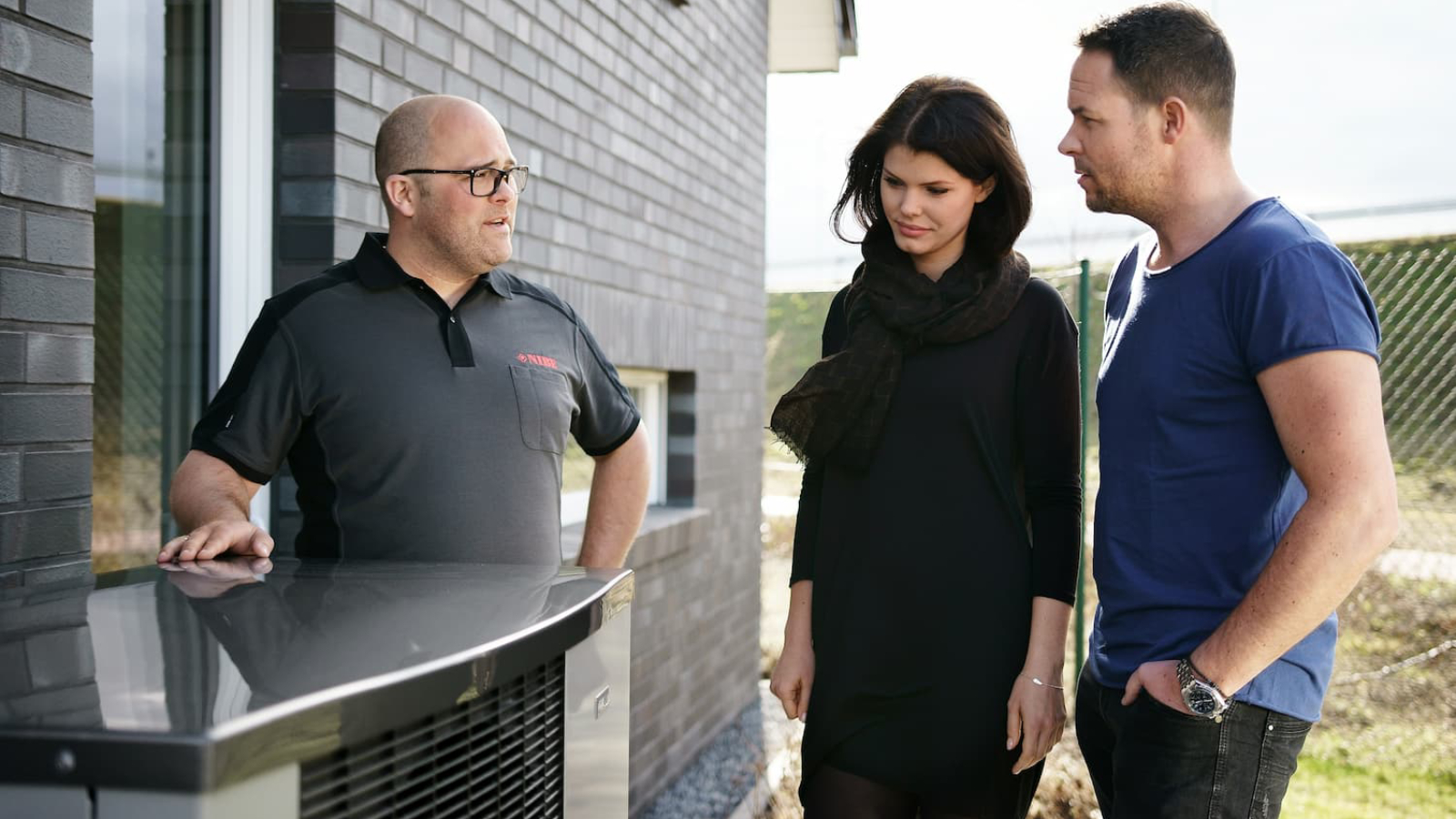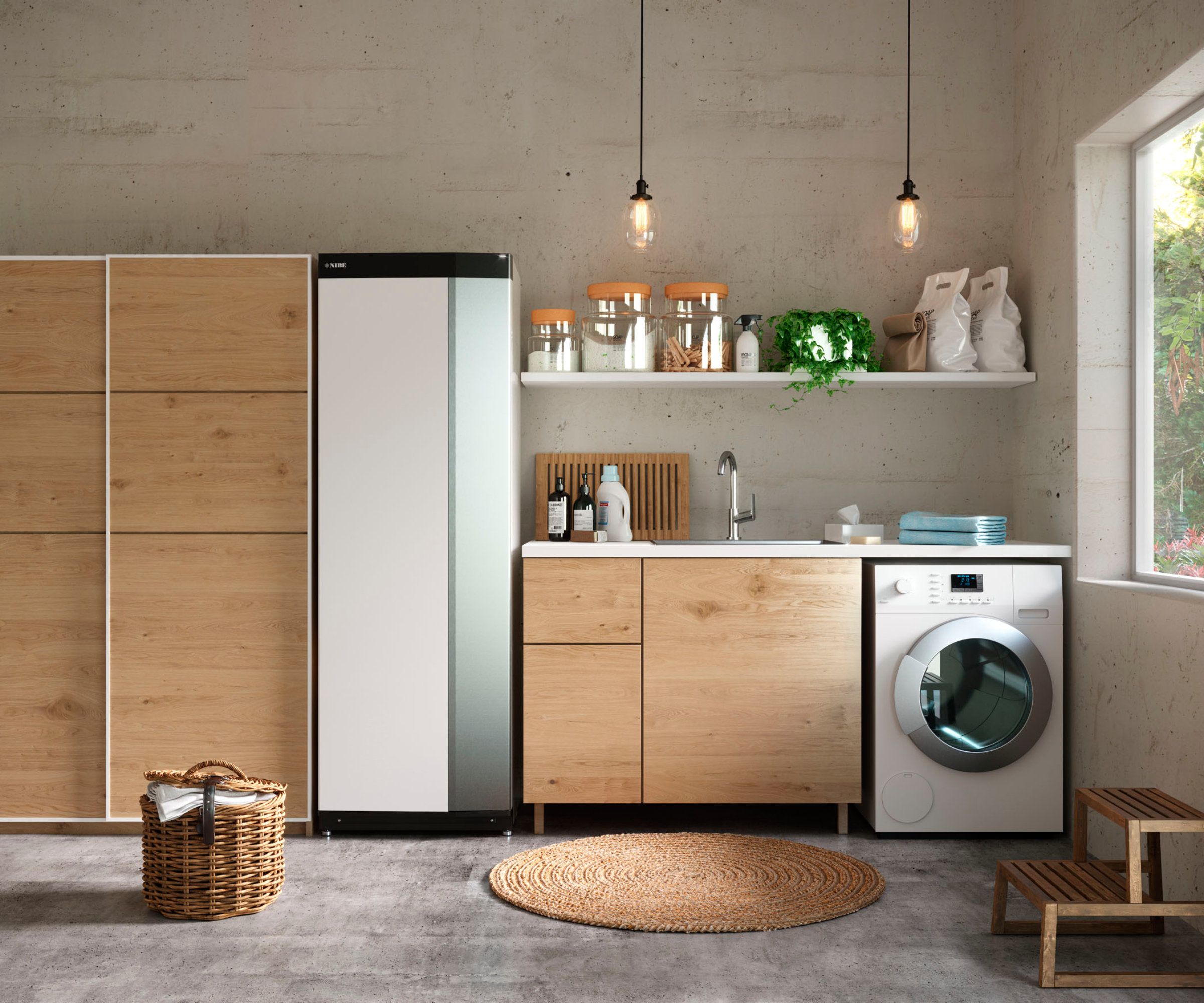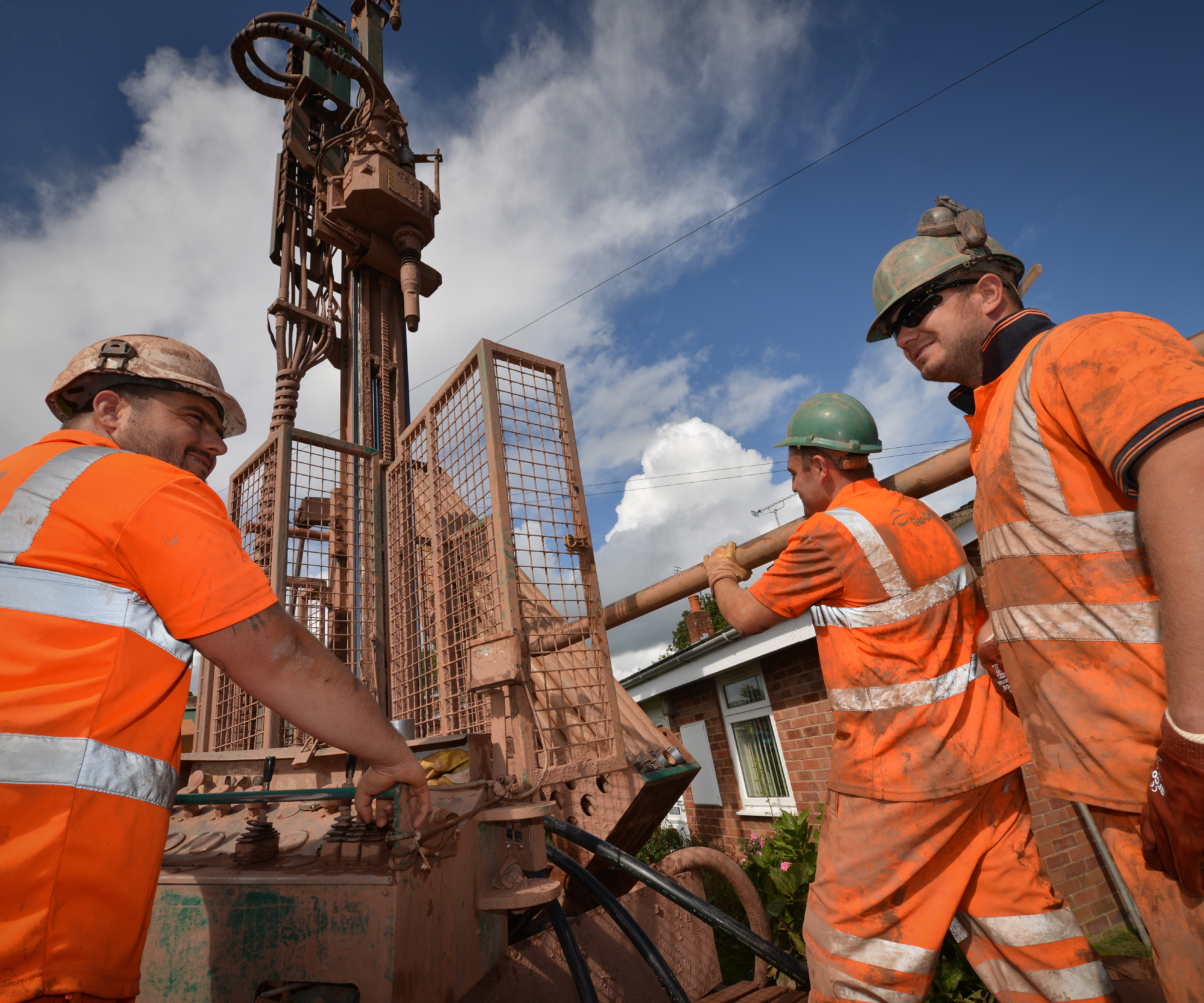Are heat pumps worth it? These three factors will help you decide says energy expert
Deciding are heat pumps worth it generally comes down to three things: type, costs and efficiency says energy expert, David Hilton. We explore the facts

While environmental experts and the government continue to encourage homeowners to make the switch to a heat pump, one of the first questions most people ask is 'are heat pumps worth it?'
Costing more than a boiler replacement and usually requiring additional work to your existing emitters (for example, radiators), we asked energy expert, David Hilton his views on 'are heat pumps are worth it', and the factors that may affect the answer.
He says type, installation costs and performance are the three main variables to consider when deciding are heat pumps worth it for your home, and explains why you need to explore each one to find the answer.
Understanding how the type of heat pump can impact your answer
In order to answer the question 'are heat pumps worth it,' we must start by looking at the different types available.
In essence, heat pumps essentially move heat from one place to another. They have a refrigeration circuit that absorbs heat from the environment, and then enhances it, before transferring it as useful heat to the home central heating system.
In terms of the type of heat pumps that are available, there are three main types and each one is named after the area that it gets its heat from.
An air source heat pump gets its heat from the outside air that circulates around the heat pump outdoor unit.
Bring your dream home to life with expert advice, how to guides and design inspiration. Sign up for our newsletter and get two free tickets to a Homebuilding & Renovating Show near you.
A ground source heat pump gets its heat from the ground outside the home via ground collectors, which can either be horizontal or vertical. In a vertical system, pipes are buried in a series of trenches around 1.2m deep, and as a very generic calculation the trenches need to cover an area that is around twice the floor area of the home. A vertical borehole naturally is narrower, but much deeper.
A water source heat pump is effectively the same as a ground source heat pump but there is no large ground loop. Instead, the water source heat pump draws water from the ground (or a river or lake) and then absorbs heat from the water before returning the water to the ground.
Which type you choose will depend on your house and the internal and external space available – factors that need to be considered as they will impact your installation costs.
With a ground or water source heat pump, the main heat pump unit is inside the house and will, at a minimum, require the space that would be taken up by a tall fridge freezer. An air source heat pump unit sees the main unit located outside.

Installation costs will play a major part in deciding are heat pumps worth it
When considering a new heating system, your costs for each of the different type if heat pumps will play a major role in helping you decide if a heat pump is worth it.
Installation costs for heat pumps can differ quite dramatically depending on type. The installation cost of an air source heat pump depends very much on the size of the heat pump, the amount of additional work required to install the heat pump and cylinder, and the potential costs for upgrading your central heating system so that it is optimised for heat pumps. This means costs for installing an air source heat pump can range from £9,000 up to £12,000.
However, when considering your ground source heat pump costs, these could at least double, if not more in comparison to an air source heat pump – particularly if lack of land means you need to opt for a vertical borehole.
You need around 10 to 20 meters depth per kilowatt required, with a borehole costing around £100 per meter. Therefore, the borehole collector on a 200m2 home could cost anywhere between £10,000 and £30,000.

That said, the value of grants can help reduce these costs making it seem more like heat pumps are worth it.
The Boiler Upgrade Scheme is still in action meaning there are currently incentives of up to £7,500 available for the installation of heat pumps. This applies to new builds as well as existing homes.
In Scotland the grant, as well as further interest free loans, are administered through Home Energy Scotland.
Understanding the impact of efficiency on your running costs
Last on the list, but equally as important in weighing up are heat pumps worth it, is the matter of efficiency and how this affects the running costs of your heat pump.
The running cost of a heat pump is dependent on many variables. If the heat pump is optimised then you can expect a heat pump vs gas boiler to result in slightly lower running costs.
If you can use electricity that has been generated by solar panels on your roof, or use a battery to charge up on cheap energy at night and discharge during the peak times, then further savings are also possible.
But, there are also differences when it comes to air source heat pump vs ground source heat pump. Why? Because a ground source heat pump is usually slightly more efficient than an air source heat pump as the temperature in the ground is fairly consistent, whereas the air temperature can change.
An air source heat pump is sized, and the efficiency rated, at an air temperature of 7C and a water temperature of 35°C. If the air temperature increases or the water temperature decreases, then the efficiency and output improve.
Conversely, if the air temperature decreases or the required water temperature increases, then the efficiency and output will drop accordingly. The colder it is outside, the hotter the heat pump will make the water, and therefore the lower the efficiency and output will be.
That said, an inefficient home does not necessarily mean you will have an inefficient heat pump. It is quite reasonable to have an efficient heat pump in an inefficient home.
The amount of energy you will need in a home is the same no matter what technology puts the heat in. The efficiency of a heat pump is ultimately determined by the heat emitter circuits (radiators and under floor heating) and the way these are set to work and commissioned. Unfortunately, if the emitter circuit is not optimised, the running costs will be higher.
Of course a home that is larger, or has less insulation, will also need more heat meaning the heat pump will need to run longer and will cost more to run. If the home is older or draughty then the flow temperature may also need to be increased, which will again lower the efficiency of the heat pump while the flow temperature is higher.
Are heat pumps worth it?
In conclusion, I have no doubt that heat pumps are here to stay. They will be part of our home heating future both in new homes and existing ones.
For homes that have a hot water cylinder, are reasonably insulated and draught proof, and have a compatible central heating system then heat pumps are worth it. Factor in the current grant incentive and heat pumps become very viable heating options.
With a recent revamp of the rules and the introduction of newer refrigerants such as R290 (propane), which has the capability of reaching high temperatures, installers can now also offer installation options that include higher temperature heat pumps. This means that there could be less work required on the central heating system and therefore less disruption and lower installation costs.
Clearly an optimised system will always be best and make installing a heat pump most worthwhile, but there may be occasions where the increased costs and disruption could be very high and the savings do not always justify the investment.
To really establish the facts and figures to understand are heat pumps worth it for your home, your installer should do a heat loss calculation and then give a proposal of the estimated running costs. This way, the return on investment can be clear to the home owner from the start.
Understand more about the issues surrounding the question are heat pumps worth it by finding out how to assess if your home is suitable for a heat pump and, why, the answer to are heat pumps suitable for old homes is, in general, yes.
David is a renewables and ventilation installer, with over 35 years experience, and is a long-standing contributor to Homebuilding and Renovating magazine. He is a member of the Gas Safe Register, has a Masters degree in Sustainable Architecture, and is an authority in sustainable building and energy efficiency, with extensive knowledge in building fabrics, heat recovery ventilation, renewables, and also conventional heating systems. He is also a speaker at the Homebuilding & Renovating Show.
Passionate about healthy, efficient homes, he is director of Heat and Energy Ltd. He works with architects, builders, self builders and renovators, and designs and project manages the installation of ventilation and heating systems to achieve the most energy efficient and cost effective outcome for every home.

